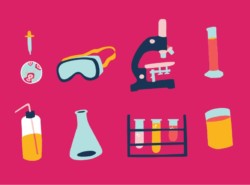
Improving Heart Health in Breast Cancer Survivors Using Tele-Rehabilitation
Published: 05/21/20 3:56 AM

Camille Short
Project Description: Cardiovascular disease disproportionally affects breast cancer survivors compared to their peers, due to the toxic effects of chemotherapy treatment on the heart. Exercise rehabilitation to improve cardio-respiratory fitness is an effective method of reducing the risk of cardiac disease. This project, led by Dr Camille Short (The University of Melbourne) will evaluate a new tele-rehabilitation platform (via the internet) to remotely deliver exercise programs to breast cancer survivors.
Why this work is needed: Whilst exercise is a promising method to reduce the risk of heart disease in breast cancer survivors, many face barriers in attending standard clinic-based programs such as time, travel and cost. This study will investigate an exercise rehabilitation program delivered via the internet, to provide personalised, supervised programs to these women in their own home environment.
Expected outcomes: This will be the first study to investigate the feasibility of tele-rehabilitation in women who have previously experienced breast cancer treatment. It will provide feasibility and safety data, and lead to a larger scale evaluation of remote exercise therapy, compared to standard clinic-based care.
Project details
Chemotherapy is well known to have off-target adverse events, such as cardio-toxicity, or damage to the heart. This can lead to cardiovascular disease later in life, which is now a leading cause of death among breast cancer survivors.
It is possible to reduce the risk of cardiovascular disease through specialised exercise rehabilitation. This is usually provided in supervised clinic-based programs, but these can be challenging to access for women due to time, travel and cost barriers. Home-based programs, where the participant follows a written plan, have not been as effective as supervised exercise therapies. This is likely due to a lack of real-time encouragement and adaptation of the program to an individual’s needs.
Tele-rehabilitation could bridge the gap between these two modalities – enabling direct supervision by a clinical exercise specialist while the participant completes the therapy in their own environment (eg. at home or in a favourite outdoor location). The tele-rehabilitation platform, developed initially by team members from Deakin University, uses online applications and wearable heart rate sensors allowing the exercise session to be completed and monitored in real-time anywhere that there is internet access.
This approach has previously been shown to be effective for people with coronary heart disease, and this will be the first time it is used with women who have previously had breast cancer.

